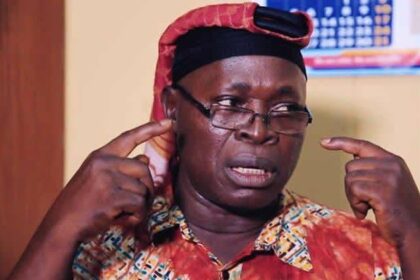A former Minister of Finance, Dr Ngozi Okonjo-Iweala, has supported the call by African ministers of finance to seek for debt relief from bilateral, multilateral and commercial partners to cushion the negative impact of the Coronavirus pandemic on the economies of countries within the region.
African Finance ministers had on Tuesday said the debt relief should be done with the support of multilateral and bilateral financial institutions such as the International Monetary Fund, the World Bank Group, and the European Union among others.
They had after a meeting which was hosted by the Executive Secretary of the Economic Commission for Africa, Vera Songwe said the debt relief would help to ensure that African countries get fiscal space required to deal with the COVID-19 crisis.
But in a chat with the BBC, the former Managing Director of the World Bank, said Africa needs multiple sources of funds to tackle the global pandemic and its economic effects.
Okonjo-Iweala, a two-time minister of finance, said Nigeria and other African countries needed to quickly pressure the G7 and G20 for debt-relief in other to deal with the economic and health issues arising from the novel coronavirus.
Okonjo-Iweala, who was very instrumental in getting Nigeria an $18bn debt-relief as minister of finance, said African countries in debt need to apply for such relief to free up resources to battle COVID-19.
According to her, if African countries get debt relief, the monies they should pay in servicing debts could be channeled towards dealing with COVID-19.
The Federal Government budget for debt service in 2020 stands at about N2.72tn.
The former finance minister said, “You know we have several sources, you’ve got the African Development Bank, which has just floated a social bond for $3bn that will be available to the countries on the continent.
“You have the World Bank that has set aside $14bn of which they’ve already committed $2bn to 25 countries — and 11 of them are Africans.
“Many of our countries need to move, to take advantage of this, and they are willing to commit $150bn over the next 15 months.
She added, “The IMF has put forward $50bn as an emergency fund, and already 80 countries have applied for this, many of them African.
“It also has a $1bn grant fund; catastrophe containment and relief trust, which they can approach. Let me mention my own organisation, GAVI, where I am chair of the board. We have made immediately available $200m to $300m grant.”
“Once these monies become available, if the countries get debt relief, that means that the monies they would have been paying to service the debt that they’ve taken from other countries; bilateral debts or from institutions, this monies can now be used to procure food and supplied and support the livelihood of people in the rural and urban area.”
She said government could use these resources as part of an intervention fund to help people directly, adding that this is what governments should be looking to do.
“But we need to move quickly, the debt relief we haven’t got it yet.
“There needs to be a great deal of pressure on the G7, G20 to come forward with this measure and then countries need to start availing themselves of the already available resources, and then pressure for the debt relief,” she added.


